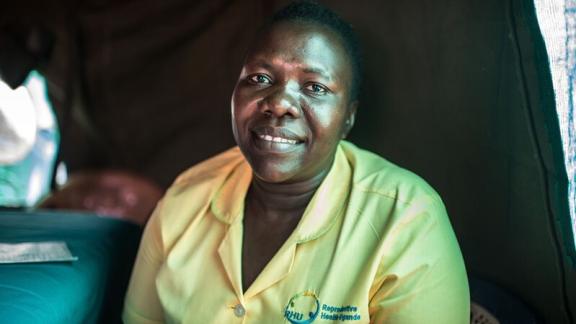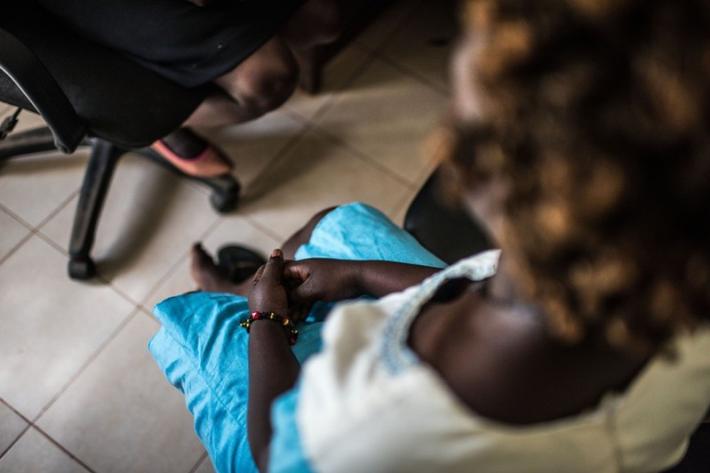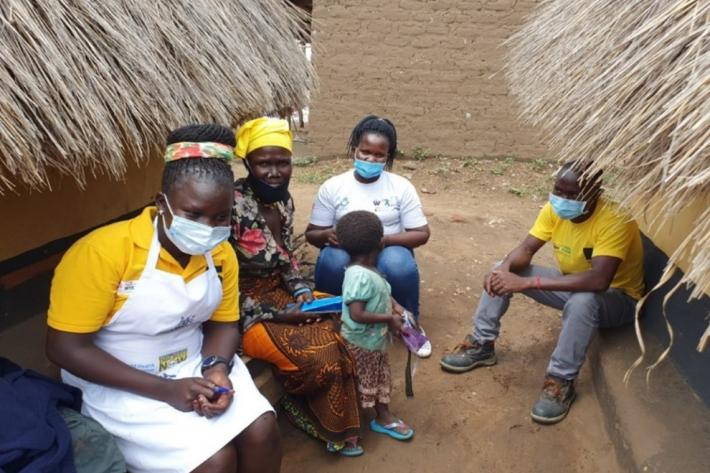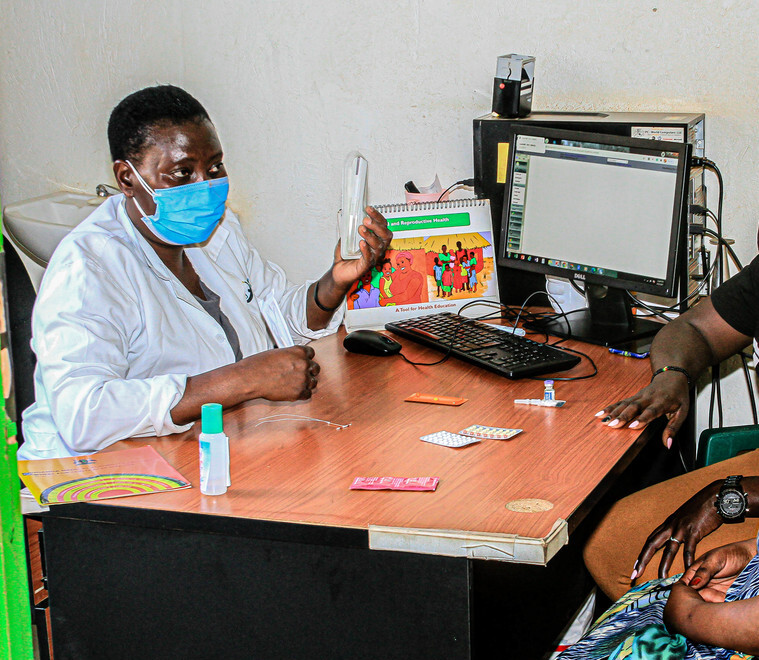By Samia Khatun, IPPF WISH Head of Region and Moses Wafula (Reproductive Health of Uganda -RHU) WISH SBCC (Social and Behavioural Change Communication) Advisor
In celebration of World Contraception Day, we tell the story of a woman reached through the WISH programme in Uganda, and how this journey has impacted on her and her family.
Since 2018 The Women’s Integrated Sexual Health (WISH)[1] programme enhanced access to modern family planning methods for women, especially young people under 20 years of age, people with disabilities, people living in poverty and those living in humanitarian settings. The programme aims to empower women and girls to make their own choices on shaping their family from how many children to have, to when they would like to have them.
Since its inception the WISH2ACTION programme, led by IPPF, covering 15 countries across East and Southern Africa and Asia, provided 25 million years of contraceptive coverage to couples[2], reached over 2.9m new additional users of contraception, of which nearly 16% were under 20 years of age.
The modern contraceptive prevalence rate (mCPR) or number of women accessing modern methods of family planning in Uganda for all women stood at 30.4% in 2020. The Government of Uganda has committed to increasing the ability of women who would like to use modern contraceptive to a rate of 39.6% by 2025, WISH is contributing to this effort.
Rose’ Road to Determining Her Future
Rose* is a 32-year-old woman living in Buyoga village in Ikumbya, a remote village in North-eastern Uganda. Rose is the second wife in a polygamous marriage. She has been married for 16 years and has seven children with her husband. Her eldest child is 14 years old, and the seventh child was just three weeks old at the time we met Rose. The spacing between each of her children is an average of 15 months.
“I had not intended to marry so early, but when I was 16 years old, I travelled to another village for holiday where I met my husband. Months later I realised that I was pregnant and got married.” Having six children, she has struggled to provide for her family.
Outreach Clinics
Rose first learned about healthy birth spacing in 2019 during a WISH outreach in Ikumbya organised by RHU. A Village Health Team (VHT) informed her about the outreach services coming to Buyoga, she would be able to learn more about different contraceptives and to access free services.
During this outreach Rose decided to take a three-year implant following comprehensive counselling on the various contraceptive methods available to her.
In April 2021, Rose had decided to have her implant removed as she wished to have another baby. Her youngest child then was almost three years old. She got pregnant with her seventh child.
Planning for the future
The following year in June 2022, RHU re-visited Buyoga village to conduct an outreach clinic. When Rose learned of the visit, she was determined to receive a contraceptive method that would offer her protection for a long period. Provision of family planning after a woman gives birth in Uganda remains sparse, particularly in the first three weeks after birth (with less than 6% of women accessing post-partum contraception) representing a missed opportunity for a woman to protect herself from an unintended pregnancy in the period she is recovering and taking care of a new baby.
Rose and her husband opted for the 5-year implant. She explained “I would like to have one more child in the future. After that I might get a permanent method, so that I can then focus on raising my children and give them the best I can.“
Henry Wasswa, the RHU Busoga Coordinator has noted the importance of the WISH intervention in this region particularly for young people, close to 50% of mothers who attend antenatal are below 20 years.
“Community dialogues and outreach services provide an opportunity to close the gap for under privileged adolescent girls and young women to make informed choice and decisions. These women often lack access to quality SRHR (Sexual Reproductive Health and Rights) information and access services as facilities are often too far away and too costly to reach,” he says.
In Uganda, WISH has been able to reach approximately 2.1 million family planning users, avert over 1.4 million unintended pregnancies and avert more than 2500 maternal deaths[3], representing a £75 million saving in direct healthcare costs.
As we mark World Contraception Day it is important to note that many women and girls still do not have adequate access to contraception to prevent unintended pregnancies. While programmes such as WISH have provided vital services, in the long-term more action is needed by Governments to ensure that young girls and women living in poverty are able to access family planning services for free, family planning is offered to all women post-partum and family planning is budgeted for, such that their global commitments are made a reality to improve the lives of women and girls.
*Featured image: a clinician at Reproductive Health Uganda (RHU)
For more updates on our work, follow IPPF Africa Region on Facebook, Twitter, Instagram and You Tube.
[1] The WISH Programme is split into 2 Lots: Lot 1 (covering 12 countries in West and Central Africa) and Lot 2 commonly referred to as WISH2ACTION (covering 15 countries in Eastern and Southern Africa + Asia).
[2] The estimated protection provided by family planning (FP) methods during a one-year period.
[3] This figure is inclusive of all WISH service delivery partners in Uganda not just RHU and is generated using the Impact2 model
when
country
Uganda
Related Member Association
Reproductive Health Uganda













